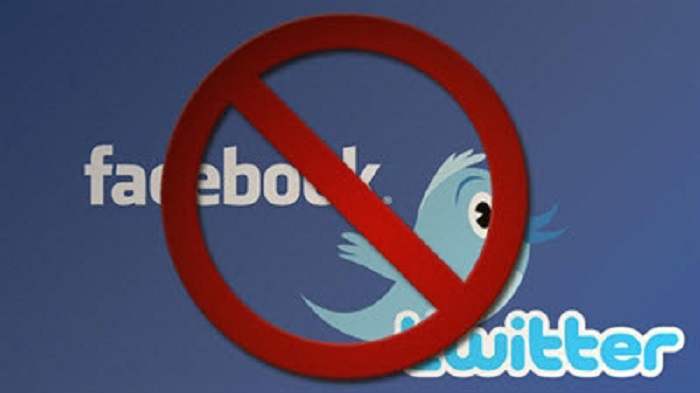
Iranian regime under “moderate” Rouhani filters Internet.
The Internet and social media have played a vital role in the growing resistance movement. Since the massive popular uprising of December 2017, the MEK has harnessed the power of social media to spread the news of the regime’s corruption and to organize protests and resistance activities. The regime has responded to this threat to its power by tightening restrictions to online media.
Regime officials have made a number of recent comments indicating that they plan to further restrict the public’s access to online information.
The mullahs’ Assembly of Experts released a statement on January 17th, which contained ominous language about the regime’s plans for the future of Internet censorship. It read:
“The Ministry of Communications, the High Council of Cyberspace, and all related institutions should actively engage in establishing order in the cyberspace, confront unethical issues and psychological warfare by the enemy, and take serious steps in monitoring and confronting the opposition and unethical networks.”
The regime has also expanded the role of its military and the Islamic Revolutionary Guards Corps (IRGC) in policing the Internet, which has alarmed many human rights and Internet freedom activists.
In April, regime Supreme Leader Ali Khamenei appointed former IRGC chief Mohammad Ali Jafari as head of the IRGC Baghiatallah Cultural and Social Headquarters (BCSH). Jafari will lead the organization in its mission to fight the “soft war” supposedly taking place between the Iranian regime and the West.
Current Restrictions to Online Access
The Iranian regime has taken a special interest in the online activities of students, who tend to be more politically active and likely to seek out uncensored information on the Internet and through social media.
On April 21, 2019, the Supreme Cultural Revolution Council’s Committee for the “Islamization of Universities” passed an amendment to its academic disciplinary regulations prohibiting university students from participating in “unethical” online activities. However, the definition of unethical was left undefined, leaving officials free to arbitrarily punish students.
#MEK–#Iran: High ranking mullah in Iran calls “free Internet,” evil in order to justify ongoing censorship. He also argued that the regime should “take over the Internet.” https://t.co/0LFLHWcxcd#FreeIran #FreedomOfSpeech #HumanRights
— MEK Iran (Mujahedin-e Khalq) (@MEK_Iran) February 6, 2019
Jamasb Nozari, director of the state-run Academic Affairs Organization, commented on the amendment in an April 26, 2019 interview with the state-run Iranian Students News Agency (ISNA).
“Publishing unethical photos or committing immoral acts in cyberspace and on information-sharing networks will result in disciplinary action against students,” he said.
The new rule does not define what is and isn’t “unethical,” giving the authorities free rein to make arbitrary decisions.
"It’s just ridiculously unbelievable how a regime with all its propaganda machine and control and censorship apparatus can’t take some opposing views in the cyberspace. That is how fragile the Iranian regime is."#Iranhttps://t.co/VRPG7qDysY
— People's Mojahedin Organization of Iran (PMOI/MEK) (@Mojahedineng) March 5, 2019
The regime enforces its draconian censorship measures on the broader population as well. For example, last year the Iranian regime banned the popular messaging app Telegram. Subscribers of
Iran’s Hamrah Aval mobile phone company who attempt to access Telegram without using encryption software are now redirected to a website where the following message appears:
“By the order of the Prosecutor General, accessing this content is prohibited and in violation of the laws of the Islamic Republic of Iran. Your device specifications and internet identification have been recorded.”
Failure of the Regime’s Restrictions
Tech-savvy Iranians have been able to successfully bypass the regime’s restrictions through the use of VPNs and other encryption software, which has flustered regime officials.
On January 21, regime president Hassan Rouhani acknowledged that efforts to censor the Internet had so far been unsuccessful. He said:
“Well, we were unsuccessful in some of our efforts in recent years,” he said. “We thought it is under our control. We thought it would be filtered if we just ordered so…. What should we do with VPNs?”
Four days prior to Rouhani’s statement, Ahmad Khatami, the spokesman for the board of directors of Assembly of Experts, voiced similar concerns, saying that “everyone agreed that the damages inflicted by the cyberspace were serious.”
Although it is encouraging that the regime has failed in its efforts to restrict access to the Internet so far, the battle is far from over. State-run media has recently begun reporting on a new state agency, known as the Prosecutor General’s Cyber Division Rapid Reaction Center. This agency, which has opened branch offices in cities including Mashhad, Ardabil, and Khorramabad since the beginning of 2019, appears to have the mission of monitoring and censoring online content and activities.
To date, regime officials have not released any information about the agency or its purpose, although some have speculated that it could have been created to more effectively carry out the judiciary’s orders to block websites and apps.
Staff writer
